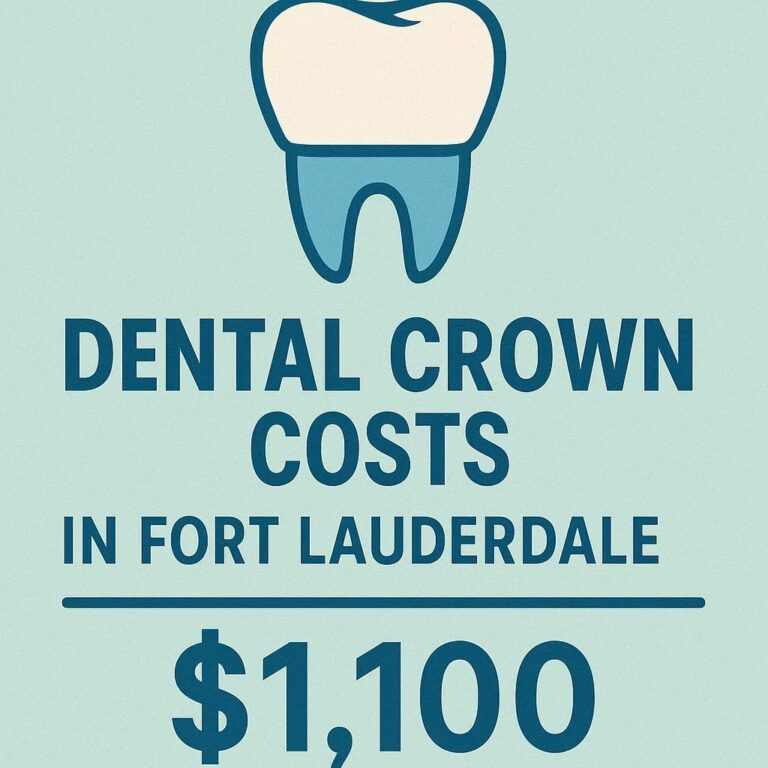The Complete Guide to Porcelain Crowns Cost for Front Teeth
A beautiful smile can boost confidence, and front teeth play a crucial role in facial aesthetics. However, damaged, discolored, or misshapen front teeth can affect both appearance and function. Porcelain crowns offer a durable and natural-looking solution to restore front teeth, but many patients wonder about the cost, procedure, and best options available.
This comprehensive guide explores everything you need to know about porcelain crowns for front teeth, including types, costs, procedures, and alternatives. Whether you’re considering cosmetic enhancement or restorative treatment, this article will help you make an informed decision.

2. What Are Porcelain Crowns for Front Teeth?
Porcelain crowns, also known as dental caps, are tooth-shaped coverings placed over damaged or decayed teeth to restore their shape, size, strength, and appearance. Front teeth crowns are specially designed to match natural tooth color and translucency, ensuring a seamless blend with surrounding teeth.
Key Features of Porcelain Crowns:
-
Natural Appearance: Mimics the light-reflecting properties of real teeth.
-
Stain Resistance: Unlike composite resin, porcelain resists discoloration.
-
Biocompatibility: Safe for patients with metal allergies.
3. Types of Porcelain Crowns for Front Teeth
A. Traditional Porcelain Crowns
-
Made entirely of ceramic.
-
Best for patients with metal allergies.
-
Highly aesthetic but slightly less durable than other options.
B. Porcelain-Fused-to-Metal (PFM) Crowns
-
A metal base covered with porcelain.
-
Stronger than all-porcelain crowns but may show a dark line at the gum over time.
C. Zirconia Crowns
-
Extremely durable and fracture-resistant.
-
Ideal for patients who grind their teeth.
-
Slightly less translucent than E-max crowns.
D. E-max (Lithium Disilicate) Crowns
-
The most aesthetically advanced option.
-
Thin yet strong, perfect for front teeth.
-
Higher cost but superior natural appearance.
Comparison Table: Types of Porcelain Crowns
| Type | Durability | Aesthetics | Cost (Per Tooth) |
|---|---|---|---|
| Traditional Porcelain | Moderate | Excellent | 800−1,500 |
| PFM Crowns | High | Good | 900−1,800 |
| Zirconia Crowns | Very High | Very Good | 1,000−2,500 |
| E-max Crowns | High | Best | 1,200−3,000 |
4. Why Choose Porcelain Crowns for Front Teeth?
A. Aesthetic Advantages
-
Matches natural tooth color and translucency.
-
No metal visibility, making it ideal for visible teeth.
B. Durability and Strength
-
Lasts 10-15 years with proper care.
-
Resists chipping and wear better than composite materials.
C. Biocompatibility
-
Hypoallergenic (no metal components).
-
Safe for long-term use.
5. Factors Affecting the Cost of Porcelain Crowns
A. Material Quality
-
E-max crowns cost more than traditional porcelain due to superior aesthetics.
B. Dentist’s Expertise
-
Experienced cosmetic dentists charge more for precision work.
C. Geographic Location
-
Urban areas (NYC, LA) have higher prices than rural clinics.
D. Additional Procedures
-
Root canal therapy (500−1,500) may be needed before crown placement.
6. Average Cost of Porcelain Crowns for Front Teeth (2024 Breakdown)
| Country | Average Cost (Per Tooth) |
|---|---|
| United States | 800−3,000 |
| Canada | 900−2,500 |
| UK | £600 – £2,000 |
| Australia | AUD 1,000 – AUD 3,000 |
Does Insurance Cover Porcelain Crowns?
-
Most insurance plans cover 50-70% if the crown is medically necessary.
-
Cosmetic cases may require out-of-pocket payment.
7. The Porcelain Crown Procedure: Step-by-Step
-
Initial Consultation – Examination, X-rays, treatment planning.
-
Tooth Preparation – Shaping the tooth for crown placement.
-
Impressions & Temporary Crown – Lab-made crown fabrication takes 1-2 weeks.
-
Final Crown Placement – Cementing the permanent crown.
8. How Long Do Porcelain Crowns Last? Maintenance Tips
-
Lifespan: 10-15 years (longer with good oral hygiene).
-
Care Tips:
-
Avoid chewing hard foods (ice, nuts).
-
Brush twice daily with non-abrasive toothpaste.
-
Regular dental check-ups.
-
9. Pros and Cons of Porcelain Crowns for Front Teeth
Pros:
✔ Natural appearance
✔ Stain-resistant
✔ Long-lasting
Cons:
✖ Higher cost than composite bonding
✖ Requires tooth reduction
10. Alternatives to Porcelain Crowns
-
Veneers (Thin shells for cosmetic improvement)
-
Composite Bonding (Cheaper but less durable)
-
Dental Implants (For missing teeth)
11. How to Choose the Right Dentist
-
Check before-and-after photos of previous work.
-
Read patient reviews.
-
Verify credentials (ADA, AACD membership).
12. Frequently Asked Questions (FAQs)
Q: How painful is getting a porcelain crown?
A: The procedure is done under local anesthesia, so discomfort is minimal.
Q: Can porcelain crowns be whitened?
A: No, they resist stains but don’t respond to whitening treatments.
Q: How soon can I eat after crown placement?
A: Wait until numbness wears off (1-2 hours).
13. Conclusion
Porcelain crowns for front teeth offer a perfect blend of aesthetics and durability, with costs ranging from 800to3,000 per tooth. Factors like material, dentist expertise, and location influence pricing. Proper care ensures longevity, making them a worthwhile investment for a radiant smile.


